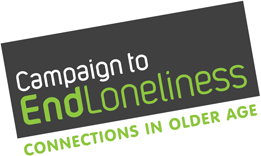On Monday 26th January, the Campaign to End Loneliness launched their brand new guide on what works to address loneliness in older age.
‘Loneliness is a bigger problem than simply an emotional experience. Research shows that loneliness and social isolation are harmful to our health: lacking social connections is a comparable risk factor for early death as smoking 15 cigarettes a day, and is worse for us than well-known risk factors such as obesity and physical inactivity’. Find out more about loneliness here.
Developed by the Campaign to End Loneliness and Age UK, Promising Approaches to Reducing Loneliness and Isolation in Later Life draws on experience, expertise and evidence to set out a new framework for understanding how to tackle loneliness and isolation.
The Campaign to End Loneliness and Age UK have produced a report that offers practical answers to what works in tackling loneliness. In the report, the Campaign to End Loneliness argue that leaders in health and social care must recognise the individual’s experience of loneliness and should not seek a ‘one size fits all solution’.
They set out a new framework for understanding how to tackle this multi-faceted problem, presenting a range of projects and examples from around the country.
This guide can help ‘commissioners, funders and deliverers of services that support older people to identify the areas of need in your communities, and support you as service providers, in the delivery of more effective loneliness interventions’. To find out more, and see how you can involved in this campaign, visit the Campaign to End Loneliness website here.
